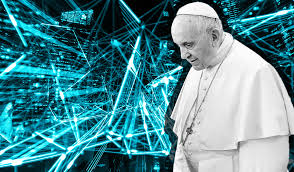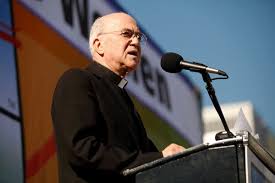Pope Francis’ Leadership: Strength in Openness
Over the past decade, Pope Francis has garnered both admiration and criticism for his open, candid, and gentle approach. Some view these traits as weaknesses that emboldened opponent factions within the Church. Recent actions suggest a different interpretation. The excommunication of Archbishop Carlo Maria Viganò leaves no doubt of the Vatican’s firm stance against internal rebellion. Despite the severity of this step, it was a necessary measure to uphold the Church’s unity and authority.
The Challenge of Conservatism
Since his election, Pope Francis has faced opposition from conservative elements within the Church. His focus on inclusivity, social justice, and reforms has not sat well with everyone. Archbishop Viganò emerged as a leading voice of this conservative dissent, criticising the Pope and calling for his resignation. His rhetoric escalated to the point of accusing Francis of being “a servant of Satan” and rejecting the reforms of the Second Vatican Council.
The Vatican’s decision to excommunicate Viganò underscores the severity of his actions. This punishment, rarely employed, signifies the extent to which Viganò has breached Church protocol and authority. His refusal to recognise Pope Francis and his embrace of conspiracy theories have marked him as a figure far removed from the core principles of the Church.
The Necessity of Discipline
Excommunication is a grave step, often reserved for the most serious transgressions. For Viganò, this punishment serves as a clear message: the Church will not tolerate actions that undermine its unity and authority. By refusing to recognise the Pope’s authority and publicly denouncing him, Viganò effectively placed himself outside the bounds of acceptable conduct within the Church.
While some may view this as a harsh response, it is essential to consider the broader implications. The Pope’s authority is central to the Church’s structure and function. Allowing Viganò’s actions to go unchecked could have set a dangerous precedent, potentially leading to further division and disarray within the Church.
Pope Francis’ Firm Hand
The excommunication of Viganò marks a notable shift in Pope Francis’ approach to dissent within the Church. For years, Francis tolerated criticism, valuing dialogue and open discussion. However, the appointment of Cardinal Víctor Manuel Fernández as the head of the Vatican’s disciplinary arm signals a more assertive stance. This change suggests that while open discussion is valued, there are limits, particularly when the Church’s unity and authority are at stake.
This more assertive stance is not about silencing dissent but ensuring that criticisms and debates remain within respectful and constructive boundaries. Viganò’s actions, characterised by their extreme and conspiratorial nature, crossed these boundaries, necessitating a firm response.
The Role of Repentance
Despite the severity of excommunication, it is important to note that it is not an irreversible punishment. The Church always leaves the door open for repentance and reconciliation. In Viganò’s case, his unrepentant stance and continued defiance, such as conducting Masses despite the ruling, demonstrate his unwillingness to reconcile with the Church’s authority. However, the possibility of repentance remains, reflecting the Church’s commitment to forgiveness and restoration.
Upholding the Church’s Unity
The crime of schism, which Viganò was found guilty of, is defined as a rupture with the Church’s unity under the Pope. This unity is crucial for the Church’s global mission and cohesion. By excommunicating Viganò, the Vatican reaffirmed the importance of this unity. This action serves as a reminder to all members of the Church of the importance of maintaining respect for its hierarchical structure and the authority of the Pope.
Lessons from History
Historical precedents, such as the excommunication and eventual defrocking of Emmanuel Milingo, highlight the seriousness with which the Church views such transgressions.
[In 2006, the Vatican under Pope Benedict XVI excommunicated Emmanuel Milingo, a Zambian archbishop, who married a South Korean woman in a ceremony inside the Unification Church of Sun Myung Moon. Milingo had conducted unauthorized exorcisms and established a movement for married priests. Three years later, he was defrocked.]
These actions are not taken lightly but are necessary to maintain the Church’s integrity and unity. In Viganò’s case, the Vatican’s decision mirrors past actions, reinforcing the message that while the Church is open to dialogue and dissent, it cannot tolerate actions that threaten its core principles and unity.
Not weakness, but strength
As the Church navigates these challenges, Pope Francis’ leadership remains crucial. His blend of openness and firmness serves as a guiding principle. The excommunication of Viganò, while harsh, was a necessary step to preserve the Church’s unity and authority. It sends a clear message to all members of the Church: dissent and dialogue are welcomed, but actions that threaten the Church’s cohesion and the Pope’s authority will not be tolerated.
Pope Francis’ approach, characterised by openness and candour, is not a sign of weakness but of strength. It reflects a commitment to dialogue and inclusivity while upholding the essential principles and unity of the Church. The excommunication of Viganò is a testament to this balanced approach, ensuring that the Church remains united and strong in its mission.
THIS OPINION PIECE BY FRANK KRISHNER IS NOT NECESSARILY IN LINE WITH THE OFFICIAL NEWSNET EDITORIAL POLICY. FRANK KRISHNER IS AN INDEPENDENT COMMUNICATOR AND MEDIA PRACTITIONER. THE VIEWS EXPRESSED HER ARE HIS OWN.



